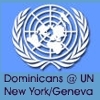

| BRIEFING - August 10, 2011 | To learn more about the Millenium Development Goals, click on the graphic Past Briefings: June 22, 2011 June 8, 2011 May 11, 2011 April 27, 2011 April 6, 2011 March 23, 2011 March 9, 2011 February 9, 2011 January 26, 2011 January 12, 2011 |
||
Examining the request for statehood for Palestine
In 1975, the United Nations General Assembly established the Committee on the Exercise of the Inalienable Rights of the Palestinian People and requested it to recommend a program of implementation to enable the Palestinian people to exercise their inalienable rights to self-determination, national independence and sovereignty; and to return to their homes and the property from which they had been displaced. At a recent meeting of this Committee, Mr. Riyad Mansour, the Permanent Observer for Palestine at the United Nations, addressed Palestine’s completion of a two-year state-building program, and its determination to move forward with its request for recognition as the 194th Member State in the United Nations when the General Assembly opens in September. He spoke of the “contract” with the United Nations, which was reflected in Prime Minister Salam Fayyad’s plan to build up Palestinian state institutions, end Israeli occupation and achieve independence. This plan was enthusiastically received, endorsed and financed by the international community. Mr. Mansour also made note of the fact that during the International Meeting in Support of the Israeli-Palestinian Peace Process, held in Brussels on June 28-29, the International Monetary Fund, the World Bank and the UN had all concluded that the state-building process had been completed. September will be a critical month for both Palestinian and international efforts at bringing about statehood. A number of significant factors will converge:
To date, the movement towards statehood has the support of 120 Member States of the United Nations. The primary obstacle to realizing this vision will be the Security Council, where the United States has already indicated that it will exercise the power of veto. While committed to a just and fair resolution to the conflict, the United States believes this must be done through direct negotiations between the parties, and considers the Palestinian request for recognition of statehood as “unilateral.” As of this writing, Prime Minister Benjamin Netanyahu’s government has indicated a possible willingness to accept a U.S. proposal to resume peace talks using the 1967 borders as a basis of negotiations, in order to counter the Palestinian bid for UN recognition. I recently came across a book which reminds us that this “conflict” is about people: “The Lemon Tree: An Arab, A Jew, and the Heart of The Middle East,” by Sandy Tolan. A few of its reviews :
On another note: On Aug. 15, I will be welcoming a Dominican Volunteer, Alexandra Sajben, who will be working along with me for the coming year. Alex is a 2011 graduate of Notre Dame, where she majored in French language and literature, and Peace Studies. I look forward to introducing Alex to life at the UN from a Dominican perspective, and to sharing these Briefings with her, as well! You will hear from Alex soon!! Hope you are enjoying these summer days…
|
Dominican Leadership Conference
Building relationships and collaborating in the mission of preaching the Gospel
29000 West Eleven Mile Road
Farmington Hills MI 48336
248-536-3234 Contact: Executive Director
